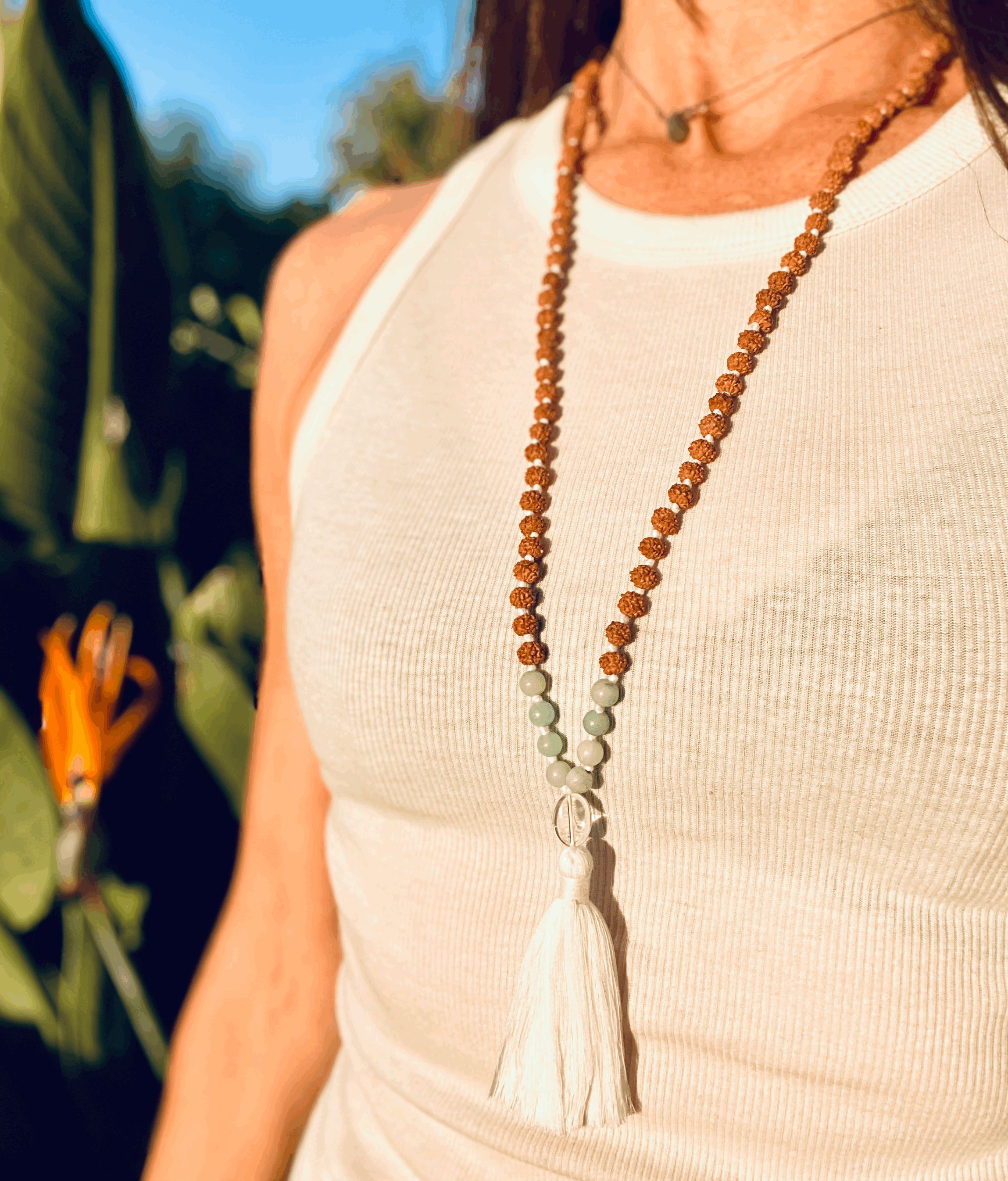Viveka Divine Malas
The malas are made by female artisans (aka Didi) in Rishikesh, India. They receive a safe workspace, fair pay, and the support they need for themselves, their families, and their communities to thrive sustainably.
I wanted to collaborate with this community of women to create these Mala designs while gaining access to fair wages and safe working conditions, as well as being empowered enough through their earnings to support themselves financially and eventually lift entire communities out of poverty!
All malas have 108 beads, are cleansed in the Ganga, the holiest river in the world.
In the classic japa mala, used in Buddhism and Hinduism, there are 108 beads used for prayer and mantra. The number 108 has a range of significance across many different cultures and disciplines.
There are 108 chapters of the Rig Veda, 108 Upanishads and 108 primary Tantras. In in the field of Ayurveda, there are 108 sacred places, or marmas, in the body, identifying intersections of matter and consciousness.
A mala, meaning garland in Sanskrit, evokes a circular, continuous form. In practice, a mala is the devoted offering of repeated cycles (typically in divisors of 108) of mantra japa or yoga asana. Within a mala, there is always a sense of beginning, continuing and completion. Both inside each individual cycle and in the practice as a whole.








